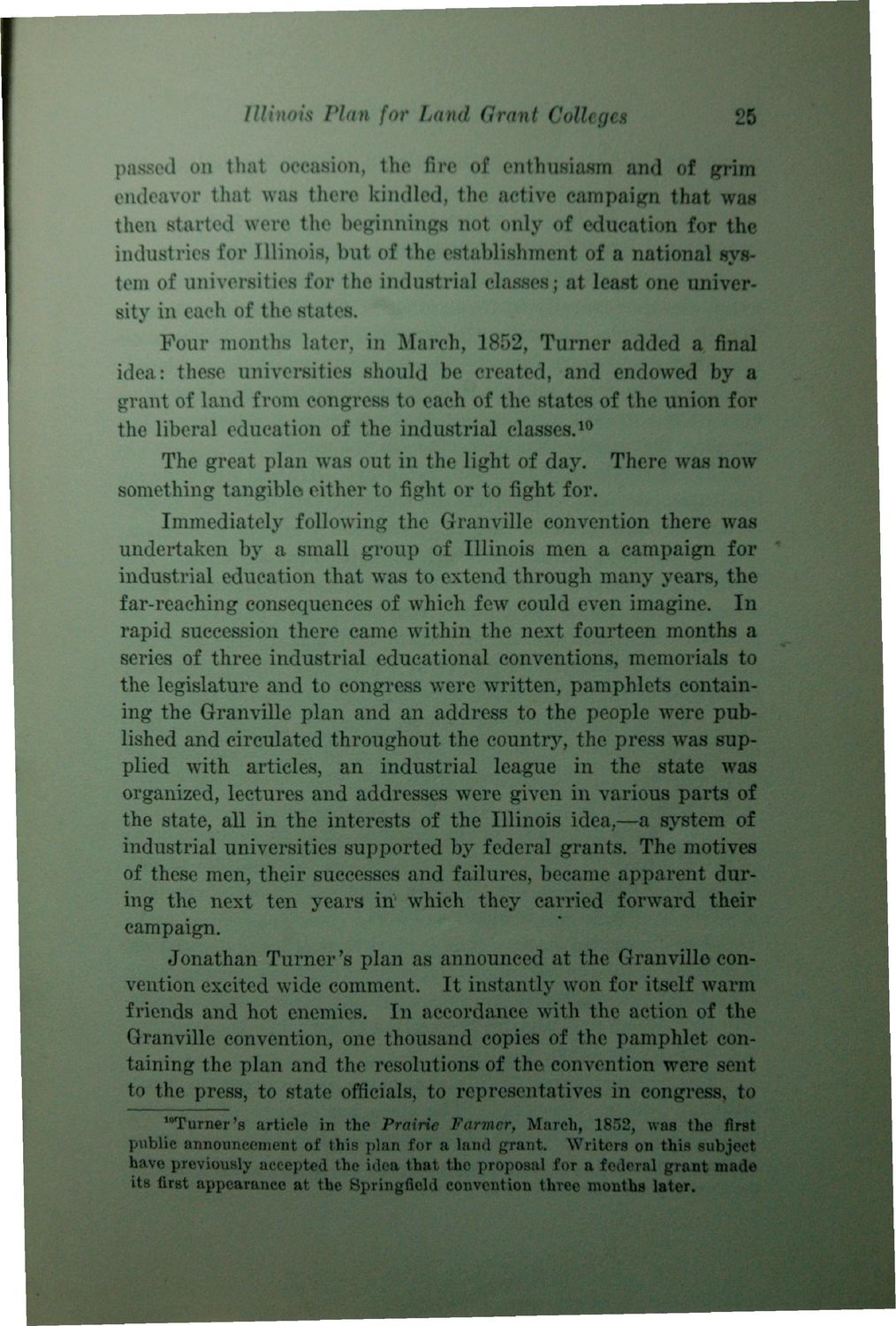| |
| |
Caption: Book - History of the University (Powell)
This is a reduced-resolution page image for fast online browsing.

EXTRACTED TEXT FROM PAGE:
Illinois Plan for Land Grant Colleges 25 passed on that occasion, the fire of enthusiasm and of grim endeavor that was there kindled, the active campaign that was then started were the beginnings not only of education for the industries for Illinois, but of the establishment of a national system of universities for the industrial classes; at least one university in each of the states. Four months later, in March, 1852, Turner added a final idea: these universities should be created, and endowed by a grant of land from congress to each of the states of the union for the liberal education of the industrial classes.10 The great plan was out in the light of day. There was now something tangible either to fight or to fight for. Immediately following the Granville convention there was undertaken by a small group of Illinois men a campaign for industrial education that was to extend through many years, the far-reaching consequences of which few could even imagine. In rapid succession there came within the next fourteen months a series of three industrial educational conventions, memorials to the legislature and to congress were written, pamphlets containing the Granville plan and an address to the people were published and circulated throughout the country, the press was supplied with articles, an industrial league in the state was organized, lectures and addresses were given in various parts of the state, all in the interests of the Illinois idea,—a system of industrial universities supported by federal grants. The motives of these men, their successes and failures, became apparent during the next ten years iri' which they carried forward their campaign. Jonathan Turner's plan as announced at the Granville convention excited wide comment. It instantly won for itself warm friends and hot enemies. In accordance with the action of the Granville convention, one thousand copies of the pamphlet containing the plan and the resolutions of the convention were sent to the press, to state officials, to representatives in congress, to "Turner's article in the Prairie Farmer, March, 1852, was the first public announcement of this plan for a land grant. Writers on this subject have previously accepted the idea that the proposal for a federal grant made its first appearance at the Springfield convention three months later.
| |